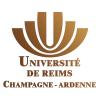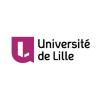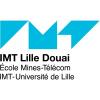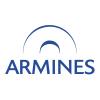
|
Materia Nova Research Centre was founded by the Polytechnic Faculty of Mons (FPMs) and the University of Mons-Hainaut (UMH), in the framework of Objective 1 in Hainaut, and has been operating as an autonomous structure since 2001. The main objective is to develop the new materials of tomorrow, but also to improve those of everyday life, in the field of surfaces and interfaces of materials (metals, glasses, ...) and polymers (in particular nanocomposites and bioplastics). As Authorized Research Centre in the Walloon Region and eligible for the French Research Tax Credit, Materia Nova has more than 80 highly qualified researchers and technicians, whose goal is to work in partnership, in particular, with companies in the Walloon Region and in the Nord-Pas-de-Calais Region to: (1) carry out scientific research applied to the industry as well as tests and analyses on all materials from these industries; (2) to make its skills available to businesses in the form of technological guidance; (3) to help in the valorisation of the results of research carried out in Wallonia and abroad.
Thanks to its technical expertise and its technological platform, Materia Nova also plays a central role between fundamental and industrial research through its many collaborations with university partners (UMons, ULille, ...) and public structures in Belgium and in Europe (Centexbel, Fraunhofer,...).
In perfect harmony with the INTERREG-TPE project, Materia Nova is recognized for its expertise in the modification, processing and characterization of thermoplastic elastomer materials. Let us mention collaborative work already carried out with the University of Lille 1 in the context of mixtures of thermoplastic elastomers of renewable origin with high rigidities and resistant to impact or thermoplastic elastomers with multiple shape memory properties. This partnership between France and Belgium for Materia Nova will be amplified through this INTERREG project in the design, using original polymerization methods and/or adding nanoparticles, of new thermoplastic elastomers with shape memory properties with ULille 1 and KULAK or their implementation by 3D printing with the URCA for companies in the INTERREG zone with the guidance of CENTEXBEL.
|

|
Within the project Elasto-Plast, the University of Reims Champagne-Ardenne intervenes through the laboratory of engineering and Materials Science (LISM / EA 4695) created in January 2012 and brings together lecturers and researchers whose work focus on developing, formatting and analysis of materials and their properties.
All scales of studies are concerned from those of nanomaterials until those of the tools and common materials.
The multidisciplinarity of the LISM members can also cover the fields of agro and biomaterials, metallic materials, polymers and composites and study their physical and mechanical characteristics and their chemical reactivities.
The LISM will therefore contribute to this project its competence and the necessary material resources to the characterization of functional properties of raw materials and manufactured products as well as the understanding of relations structure/properties/methods.
In addition, the LISM is associated with the FabLab "Smart Materials" of the Institute of Higher Technical Training in Charleville-Mézières, which has the means and skills for additive manufacturing.
For the project of Elasto-Plast, the technology Fused Deposition Modelling (FDM) will be used to implement elastomers, first and second generation. In addition, the LISM is in relation to the local industrial fabric and has collaborations with several companies in the region and in neighbouring regions.
|

|
In partnership with the higher education institutions, the national research organizations, the University Hospital Center of Lille and the Pasteur Institute of Lille, the University of Lille is developing high-level research and technological or service innovations through major scientific projects, advanced technological means and partnerships with socio-economic and cultural actors (companies, foundations, associations, communities).
Excellence is the bedrock of its ambition, the policy implemented aims to strengthen the continuum between disciplinary and interdisciplinary scientific research, in line with major societal challenges, and partnership research with socio-economic actors. The University of Lille develops its projects within an international research framework, particularly with North West Europe and with many partners around the world.
The University of Lille is multidisciplinary, the quality of its research is recognized through projects including laboratories and equipment of excellence. In addition, it supports the emergence of new themes to enable the discoveries and inventions of tomorrow. As part of the ELASTO-PLAST Interreg project, researchers from the UCCS (Catalysis and Solid State Chemistry Unit) specializing in polymerization catalysis will develop second-generation thermoplastic elastomers with the support of specialists in the characterization of advanced polymeric materials of the UMET (Materials and Transformations Unit).
|

|
IMT Lille Douai is an engineering school and a research centre comprising 5 departments including the TPCIM department (Polymers and Composites Technology and Mechanical Engineering). The TPCIM department is a multidisciplinary team of upstream research and finalized research composed of lecturers-researchers, engineers, technicians and an administrative department. Its activities are geared towards the optimization of the transformation/processing of polymers (including bio-based polymers) and their functional properties for different sectors of applications of the plastics processing. The TPCIM relies on a technological platform unparalleled in France, bringing together most of the polymers transforming/processing technologies on an industrial scale (modular twin screw extruders, extrusion-blow moulding lines, injection moulding equipment dedicated to a wide range of materials, 3D printers, etc. ...) and specific means of characterization of polymeric materials (mechanical, thermomechanical, rheological, thermal, structural properties, etc. ...).
The contribution of the TPCIM to the Elasto-Plast project mainly concerns the evaluation of the processability by additive manufacturing (FreeFormer technology of molten microdrop projection) of the 1st and 2nd generation thermoplastic elastomers used and/or developed in the project and the resulting functional performances.
|

|
KU Leuven is an internationally renowned institution for research and education and the largest
University in Belgium with over 50.000 students. The university employs almost 10.000 people and
was ranked the most innovative university of Europe by Reuters in 2017 for the second year in a row.
Kulak, the KU Leuven campus in Kortrijk, is part of an extensive network of scientific collaborations
within the Flemish region and internationally, most notably being a part of the Lille-Kortrijk- Tourquai
Eurometropole. Located on the Kulak campus, the research group Renewable materials and
Nanotechnology (RMNT) led by Professor Thielemans focuses on the fundamental and applied
research of (nano)materials with a focus on renewability. The interdisciplinary research combines
and applies knowledge from the molecular level (chemistry), over processing (chemical engineering)
to characterisation of the obtained materials (materials science).
Within the Elasto-Plast Interreg project, the role of KU Leuven will be to investigate novel routes and
feedstock for renewable thermoplastic elastomers (TPEs), to gain a more fundamental understanding
of TPEs and to develop demonstrators that can be used to showcase TPEs to industry and the wider
public. |

|
The Association for Research and Development of Industrial Methods and Processes (ARMINES) is a contractual research structure (associative status, law of July 1901) partner of major engineering schools (including Ecole des Mines de Douai). Its purpose is industry-oriented research. Through an agreement signed with the French State in 1972 (Ministry of Industry) and bilateral agreements with each of the partner schools under the supervision of the Ministry of Industry, ARMINES set up joint research centres with various engineering schools (including the Ecole des Mines de Douai). ARMINES is therefore associated with Mines Douai by an agreement, the purpose of which is to organize a joint research centre in which ARMINES and Mines Douai have put human and material resources. This agreement comes into effect under the Research Act of 18 April 2006, which gives public higher education institutions the possibility of entrusting their research partnership activities to private sector structures. In particular, ARMINES, with its head office located in Paris (outside the region), has its own human and material resources in the Department Polymers and Composites Technology & Mechanical Engineering of Mines Douai. ARMINES is therefore utilizing its human resources (ARMINES engineers and technicians located at the TPCIM) to implement the Elasto-Plast project. The missions entrusted to ARMINES in the Elasto-Plast project are aimed at conducting and accompanying the processing tests by additive manufacturing and materials used and/or developed (and associated characterizations) with the TPCIM equipment. These missions must be considered as co-substantial with that of Mines Douai - TPCIM. ARMINES will also provide valuable assistance in spreading know-how through its international industrial network and implementing the means of communication. In this context, ARMINES and Mines Douai - TPCIM will intervene jointly in the realization of the Elasto-Plast project. |